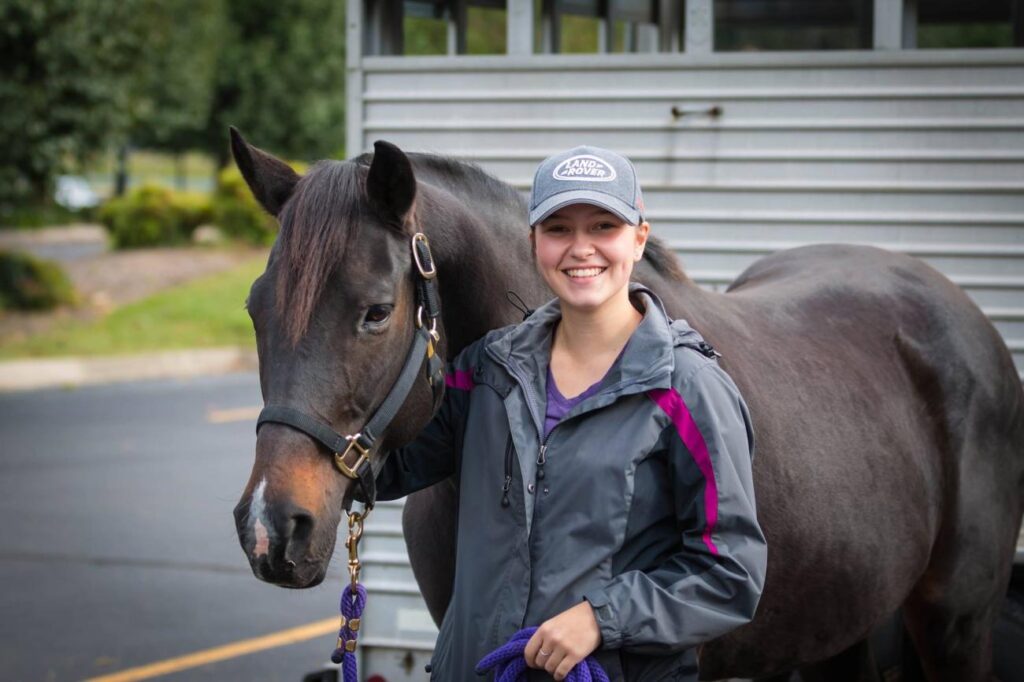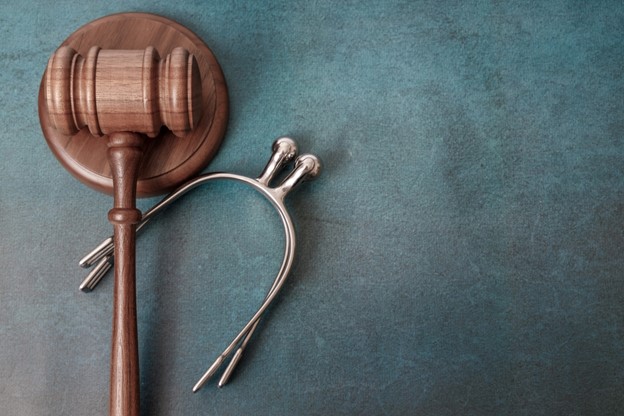Call us now:
In the world of horse ownership, there are many responsibilities and considerations that go beyond simply caring for your beloved equine companion. Equine law is a specialized area of law that deals with the legal rights and obligations of horse owners, as well as the various legal issues that can arise in the equine industry. Understanding the basics of equine law is crucial for horse owners to ensure they are compliant with legal requirements and to protect themselves from potential legal disputes.
Understanding the Basics of Equine Law
Equine law can be defined as the branch of law that encompasses all legal aspects related to horses, including their ownership, care, use, and commercial transactions. It is a unique area of law that combines elements of contract law, tort law, property law, and even criminal law.
Delving deeper into the realm of equine law, one can uncover the intricate web of regulations and statutes that govern the interactions and transactions involving horses. From the moment a horse is purchased or bred, various legal considerations come into play, shaping the rights and obligations of all parties involved. Whether it’s drafting a sales contract that outlines the terms of the transaction or navigating the complexities of liability in case of horse-related injuries, equine law provides the legal framework within which these matters are resolved.
Defining Equine Law
Equine law covers a wide range of legal issues, including but not limited to, liability for horse-related injuries, sales and breeding disputes, zoning and land use regulations, and contractual agreements between horse owners and professionals in the industry. It also includes issues such as equine insurance, import and export regulations, and the legalities surrounding equine competitions.
Furthermore, the multifaceted nature of equine law extends beyond domestic boundaries, encompassing international regulations that govern the import and export of horses. Navigating the intricate web of global equine trade requires a nuanced understanding of international agreements and treaties that dictate the movement of horses across borders. Compliance with these regulations is essential for horse owners and professionals engaged in the global equine market to avoid legal pitfalls and ensure the seamless transfer of horses between countries.
Importance of Equine Law for Horse Owners
As a horse owner, understanding and abiding by equine law is crucial because it directly affects your rights, responsibilities, and potential liabilities. Complying with equine law ensures that you are operating within the legal framework set forth by your jurisdiction and helps to maintain the integrity and welfare of the equine industry as a whole.
Equine law serves to protect both horse owners and horses themselves by establishing guidelines and regulations that govern various aspects of horse ownership, care, and use. By familiarizing yourself with equine law, you can make informed decisions, protect your interests, and ensure the well-being of your horse.
Rights and Responsibilities of Horse Owners
As a horse owner, it is essential to be aware of your rights and responsibilities within the framework of equine law. Understanding these legal aspects will help you navigate the challenges and complexities of horse ownership more effectively.
Being a horse owner is not just about the joy of riding and caring for these majestic animals; it also comes with a set of legal considerations that every responsible owner should be familiar with. From ownership rights to legal responsibilities, there are various aspects to consider when it comes to owning a horse.
Ownership Rights
When you own a horse, you have certain legal rights associated with that ownership. These rights include the right to possess and control the horse, the right to determine its care and use, and the right to make decisions regarding its breeding and training. It’s important to note that ownership rights may vary depending on local laws and any contractual agreements you have in place.
Ownership rights also extend to issues such as the right to seek veterinary care for your horse, the right to enter into agreements for boarding or training services, and the right to participate in competitions or events with your horse. These rights form the foundation of your role as a horse owner and should be upheld with diligence and care.
Legal Responsibilities and Obligations
Along with ownership rights, horse owners also have legal responsibilities and obligations. These responsibilities include providing proper care, shelter, and nutrition for the horse, ensuring its health and well-being, and taking necessary precautions to prevent harm or injury to others. Additionally, horse owners may have legal obligations regarding the maintenance of their property and the safety of others who come into contact with their horse.
Legal responsibilities also encompass issues such as liability for any damages or injuries caused by your horse, adherence to zoning and land use regulations for keeping horses on your property, and compliance with local animal welfare laws. Understanding and fulfilling these responsibilities is crucial not only for the well-being of your horse but also for maintaining a positive and lawful presence in the equestrian community.
Key Legal Issues in Equine Industry
The equine industry is not immune to legal issues and disputes. Identifying and understanding these key legal issues can help horse owners anticipate potential problems and take proactive measures to mitigate risks.
One important legal issue that often arises in the equine industry is the matter of insurance coverage. Horse owners must navigate the complexities of insurance policies to ensure they are adequately covered in case of accidents, injuries, or property damage involving their horses. Understanding the nuances of equine insurance can be crucial in protecting both the owner and the animals.
Breeding and Sales Disputes
Breeding and sales disputes are common legal issues that arise in the equine industry. These disputes can involve disagreements over breeding contracts, stud fees, ownership rights of the offspring, or misrepresentations in the sale of horses. Resolving these disputes often requires a careful examination of any written agreements and a thorough understanding of equine law.

Another aspect of breeding and sales disputes that is often overlooked is the issue of genetic testing. With advancements in technology, genetic testing has become a valuable tool in verifying parentage and identifying hereditary health conditions in horses. Disputes over genetic testing results can add a layer of complexity to breeding and sales agreements, highlighting the importance of clarity and transparency in such transactions.
Liability for Horse-Related Injuries
Horse-related injuries can give rise to legal disputes, particularly when someone is injured while interacting with a horse. Horse owners may be held liable for injuries caused by their horse’s behavior, and legal action can be taken against them. Understanding the principles of equine liability and taking preventative measures can help minimize the risk of such disputes.
Additionally, the issue of liability extends beyond just injuries to third parties. Horse owners also need to consider their liability in cases where their horses cause damage to property or other animals. Being aware of potential liability scenarios and having appropriate safeguards in place can protect owners from costly legal battles and ensure the well-being of their horses and others.
Contracts and Agreements in Equine Law
Contracts and agreements play a vital role in the equine industry, serving to clarify the rights and responsibilities of all parties involved. It is essential for horse owners to understand the importance of written agreements and the common types of contracts in equine law. Click here to learn about defending your business in the digital age with cyber, data, and privacy law.
Importance of Written Agreements
Having written agreements in place is crucial to avoid misunderstandings and protect the interests of all parties involved in equine transactions. A written agreement can specify details such as the terms of a horse sale, lease arrangements, training agreements, or breeding contracts. By having these agreements in writing, all parties are clear on their obligations and can refer back to it if any disputes arise.
Moreover, written agreements provide a sense of security and professionalism in the equine industry. They demonstrate a commitment to transparency and accountability, fostering trust between parties. In the event of any legal issues or disagreements, a well-drafted contract can serve as a valuable resource to resolve conflicts swiftly and fairly.
Common Types of Equine Contracts
Equine contracts come in various forms, each serving a specific purpose within the industry. Some common types of equine contracts include sales contracts, boarding agreements, breeding contracts, and liability releases. Each contract type must adhere to legal requirements and should be carefully reviewed and understood by all parties involved.
Furthermore, understanding the intricacies of each type of contract is essential for horse owners and professionals in the equine industry. Sales contracts, for example, outline the terms of a horse purchase, including warranties, payment schedules, and conditions of sale. Boarding agreements specify the responsibilities of both the boarding facility and the horse owner, ensuring the well-being of the horse during its stay. Breeding contracts detail the terms of stallion services, mare care, and foal ownership rights, safeguarding the interests of all parties involved in the breeding process.
Navigating Disputes and Litigation
While it is essential to take preventative measures to avoid legal disputes, it is also important to understand the process of navigating disputes and the potential for litigation in equine law.
Preventing Legal Disputes
Prevention is better than cure, and this holds true for legal disputes. Horse owners can take proactive steps to prevent legal disputes by ensuring they have written agreements in place, properly maintaining their property, and providing appropriate training and supervision when others interact with their horses. Furthermore, staying knowledgeable about equine law can help horse owners anticipate potential issues and address them before they escalate into legal disputes.
For example, having a well-drafted boarding agreement that clearly outlines the responsibilities of both the horse owner and the boarding facility can help prevent misunderstandings and disputes. Regular property inspections and maintenance can also minimize the risk of accidents or injuries that could lead to legal action. Additionally, providing proper training and supervision when allowing others to handle or ride your horses can reduce the likelihood of accidents or negligence claims.

Understanding the Litigation Process
In the unfortunate event that a legal dispute arises, it is essential to understand the litigation process. Litigation involves taking the dispute to court, where a judge or jury will hear the evidence and make a decision. Engaging with legal professionals who specialize in equine law is crucial to navigate the complexities of the litigation process.
When facing litigation, it is important to gather all relevant evidence, such as contracts, invoices, and witness statements, to support your case. Equine law attorneys can guide you through the process, helping you understand the legal strategies and potential outcomes. They can also negotiate on your behalf and represent you in court if necessary.
It is worth noting that litigation can be a lengthy and costly process. Therefore, exploring alternative dispute resolution methods, such as mediation or arbitration, can be beneficial. These methods offer a more collaborative approach to resolving disputes, potentially saving time, money, and preserving relationships.
Equine law is a specialized area of law that horse owners should familiarize themselves with to protect their rights, fulfill their responsibilities, and navigate the equine industry with confidence. Understanding the basics of equine law, knowing your rights and responsibilities as a horse owner, and being aware of key legal issues can help ensure a positive and legally compliant experience in horse ownership.
